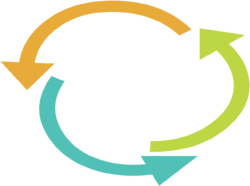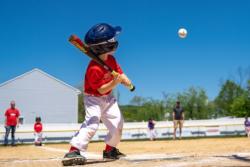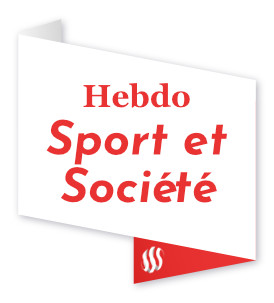International Youth Day:
sport, the educational tool of tomorrow
By Eva Jacomet, Head of European Affairs at the Sport and Citizenship Think Tank

On International Youth Day it is worth remembering the role of sport as an educational tool for helping young people to develop. Apart from its proven benefits in combating the growing sedentary lifestyle in Europe, which affects young people in particular, sport can help to form committed, responsible future citizens. The Sport and Citizenship Think Tank has valued sport’s educational, civic role for young people since its inception.
Going beyond sport’s recreational, competitive power
Sport is a domain where formal and informal learning can take many forms. Taking part in sport and learning the rules helps to transmit different values such as fairness, self-discipline, solidarity, team spirit, tolerance and perseverance. It also provides an active learning framework which complements traditional school teaching.

Sport therefore has an important role to play in SDG 4, for quality education, identified by the United Nations as the key to achieving many of the other Sustainable Development Goals, like achieving gender equality (SDG 5), reducing inequality (SDG 10), conserving and protecting life on earth and in the sea (SDGs 14 and 15), and combating climate change (SDG 13).

In recent years in Europe there has been a definite increase in the use of sport as an educational tool. New, innovative methods have been developed and made available to PE teachers and sports instructors so that they can fully exploit the educational power of sport and physical activities with young people.
A good example is the “Playdagogy” method developed by the Play International organisation: an active, participative teaching method for children between 6 and 15. It uses sport and games as an educational support in order to convey messages about prevention and social awareness among children. This approach makes it possible to deal with social and health issues in an amusing, positive way, covering themes such as violence, discrimination, gender equality and awareness of the environment.
Does sport have a role in environmental education?
In 2021, a UNESCO report analysing the educational programmes and school curricula in 50 countries showed that more than half of them made no refence to climate change, while only 19% talked about biodiversity[1]. Here, as in other social concerns, sport should be used as a complementary teaching tool in school programmes.
Sport and Citizenship is well aware of the current issues concerning climate change which affect society, including the sport sector, and in several of its projects it seeks to highlight the notion of using sport for environmental education.

In the field of water sports, the OSES project, backed by our Think Tank, aims to make young people more aware of the importance of protecting the oceans and coasts, and of the negative effects of climate change on these environments. Thanks to the methods developed by the project partners, young people have been able to enjoy fun activities combining sport (snorkelling and sailing) with observing marine flora and fauna, testing water quality and learning about plastics pollution in the oceans, in Malta and in Normandy. This mission is even more significant in that it concerns the water sports sites themselves, as the IPCC shows that the level of the seas could rise by a metre or more in a world at +4°C, which would threaten many sports and activities that take place on the sea or the shore. Teaching the young participants to adopt eco-responsible behaviour and developing their awareness of the environment in which they do their sport is therefore crucial for the future of these activities.

To make the most of its full potential, however, using sport to teach about the environment should not be limited to outdoor sports. Planet Ball, which was launched at the beginning of 2024, promotes greener football for the future, and is teaching young ambassadors about eco-responsible behaviour, in European football federations and clubs. Round about one hundred young Europeans will follow the training programme dealing with the issues of reducing the carbon footprint, recycling and managing waste, transport, water and energy consumption, eco-responsible behaviour and environmentally respectful sporting equipment. They will then put this knowledge into practice by working with the project partners to organise festivals which combine playing football with learning about the environment, a good opportunity to highlight the possible educational role of sporting events.
Major sporting events for young people: sporting…and educational platforms
Sporting events for young people, such as the ISF Gymnasiade, the key competition of the International School Sport Federation, which took place in Normandy in 2022, or the forthcoming Summer Youth Olympic Games to be held in Dakar in 2026, do not just provide a competition, but also aim to educate the participants about social issues, ranging from the climate emergency to gender equality. The inclusion of these educational approaches in major sporting events demonstrates the importance of sport as an educational tool, with the power to fashion responsible, committed future citizens. In the light of this, it is vital to continue to develop innovative teaching methods which exploit the full potential of sport, and to organise sporting events that will act as catalysts of social change, inspiring young people to become ambassadors for sustainability, diversity and social justice.
[1] UNESCO (2021). Learn for our planet: a global review of how environmental issues are integrated in education.
 This article was published in our weekly “Hebdo Sport et Société” which appears every Friday. Sign up to our newsletter to receive the next article in your e-mails.
This article was published in our weekly “Hebdo Sport et Société” which appears every Friday. Sign up to our newsletter to receive the next article in your e-mails.
Read the previous article:
“Circular economy and mega sport events – the case of the Olympics in Paris 2024”
By Anna Gerke











 MEMBERSHIP
MEMBERSHIP CONTACT
CONTACT FACEBOOK
FACEBOOK